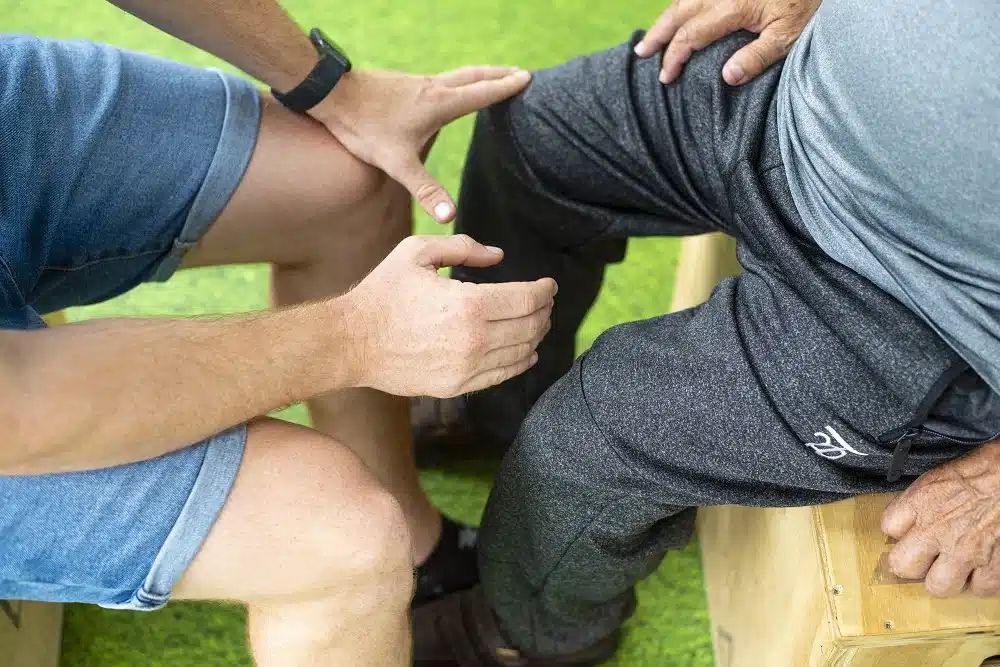In this article we will focus on neurological rehabilitation in patients suffering from Parkinson’s disease.
We will discover the strategies and therapeutic approaches used to improve the quality of life of those affected by this neurological condition.
The Effectiveness of Neurological Rehabilitation in Parkinson’s Disease
In the case of Parkinson’s, a neurodegenerative disorder affecting the motor system, rehabilitation plays a crucial role in managing symptoms and promoting patient independence.
Parkinson’s is a neurodegenerative disease that primarily affects the dopaminergic system in the brain, causing motor symptoms such as tremors, rigidity and bradykinesia (slow movements).
It can also result in non-motor symptoms, such as depression, anxiety and cognitive problems.
Although there is still no cure for Parkinson’s, neurological rehabilitation has proven to be effective in improving patients’ quality of life and slowing the progression of the disease.
Therapeutic Approaches and Strategies in Neurological Rehabilitation of Parkinson’s Disease
1- Physical Therapy:
Physical therapy focuses on improving the patient’s mobility and motor function.
Specific exercises are used to strengthen muscles, improve balance and coordination, and address stiffness and altered gait.
These exercises help reduce the risk of falls and maintain independence in daily activities.
2- Occupational Therapy:
Occupational therapy focuses on improving the skills needed to perform daily activities, such as dressing, cooking or writing.
Occupational therapists teach adaptive techniques and use assistive devices to facilitate the patient’s independence and autonomy.
3- Speech and Language Therapy:
This therapy focuses on improving verbal and nonverbal communication in people with Parkinson’s who may experience difficulty speaking clearly or expressing their ideas.
Speech therapists work to strengthen the muscles involved in speech and provide strategies to facilitate effective communication.
4- Cognitive Therapy:
Cognitive therapy aims to improve mental and cognitive functions, such as memory, attention and problem solving, which can be affected in Parkinson’s.
Through specific exercises and techniques, therapists help patients maintain an active mind and cope with cognitive challenges.
5- Deep Brain Stimulation (DBS) therapy:
In more advanced cases of Parkinson’s, deep brain stimulation therapy can be considered as a therapeutic option.
It consists of implanting electrodes in certain areas of the brain to stimulate them electrically, which helps reduce motor and non-motor symptoms in some patients.
3- Psychological support:
Psychological and emotional support is fundamental in neurological rehabilitation.
Parkinson’s disease can generate anxiety, depression and stress in both patients and their families.
Adequate psychological support can help to better cope with the emotional challenges associated with this condition.
Conclusion
Neurological rehabilitation in Parkinson’s disease is essential to improve the quality of life and independence of patients facing this neurodegenerative disease.
Through various therapeutic strategies, such as physical, occupational, speech and language, cognitive and deep brain stimulation therapy, we seek to address motor and non-motor symptoms in a comprehensive manner.
At Rehabot, we have a team of highly trained neurological rehabilitation specialists to help Parkinson’s patients face the challenges of this disease.
Our holistic and personalized approach aims to improve quality of life and promote autonomy at all stages of the process.
If you or a loved one has Parkinson’s, don’t hesitate to consult with our neurological rehabilitation experts.
Together, we will work to improve your well-being and face this condition with as much strength and confidence as possible.
Hope and quality of life are possible with the right approach to neurological rehabilitation.
Leave us your data to start your treatment







